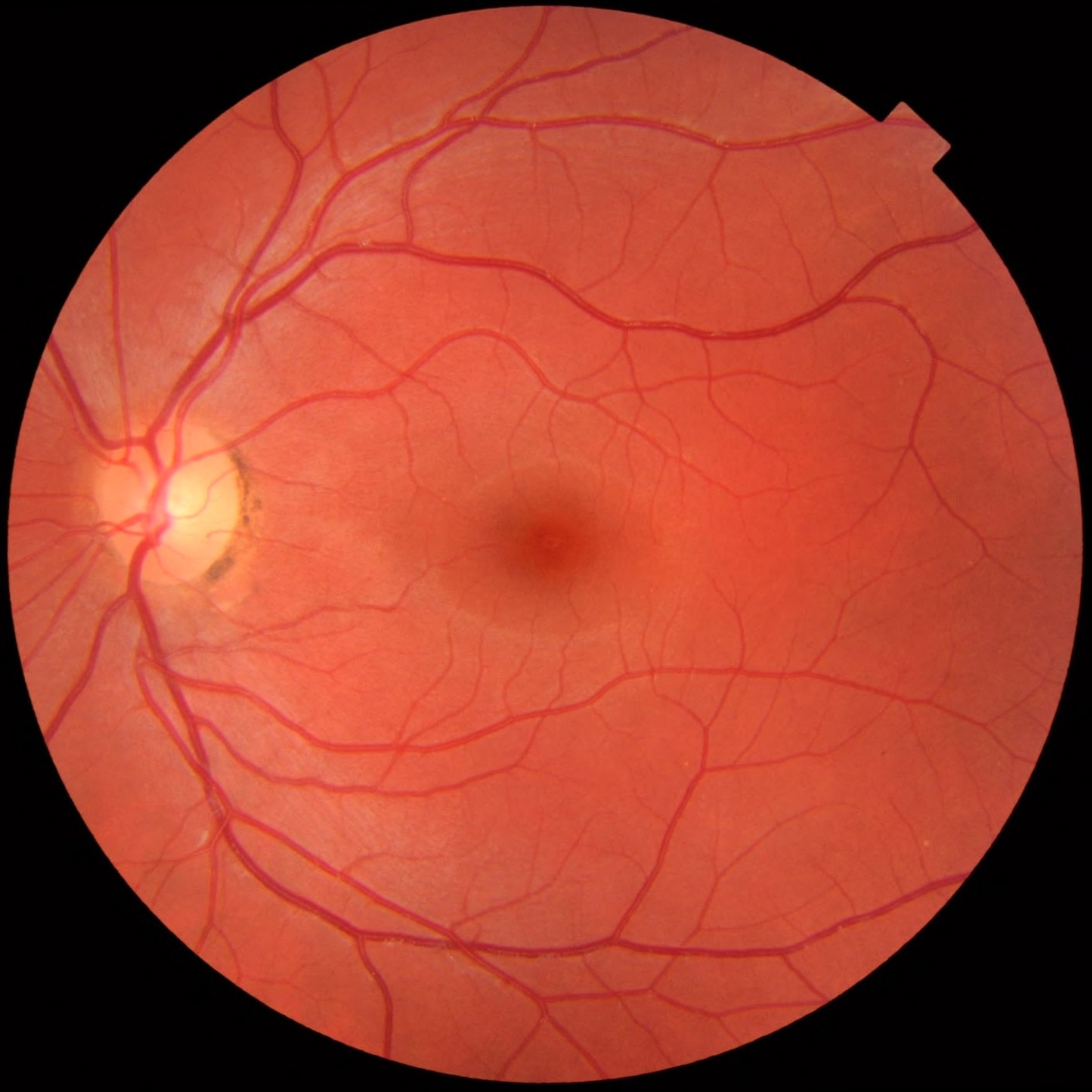|
Karl Stargardt
Karl Bruno Stargardt (4 December 1875 Berlin – 2 April 1927) was a German ophthalmologist. Life In 1899 he received his doctorate from the University of Kiel, where he later became chief physician at the university eye clinic. Afterwards he worked in the eye clinic at Strassburg, then becoming head of ophthalmology at Bonn. In 1923 he succeeded Alfred Bielschowsky (1871-1940) as chair of ophthalmology at the University of Marburg. Soon afterwards he developed nephritis and cardiac complications, and died on April 2, 1927. His name is associated with Stargardt disease, an hereditary eye disease that is one of the most common causes of childhood macular degeneration. Written works * ''Über Epithelzellveränderungen beim Trachom und andern Conjunctivalerkrankungen''. (Concerning hereditary, progressive degeneration in the macular region of the eye); Albrecht von Graefe's Archiv für Ophthalmologie, 1909, 69, 525–542. * ''Diagnostik der Farbensinnstörungen''. ... [...More Info...] [...Related Items...] OR: [Wikipedia] [Google] [Baidu] |
Berlin
Berlin ( , ) is the capital and largest city of Germany by both area and population. Its 3.7 million inhabitants make it the European Union's most populous city, according to population within city limits. One of Germany's sixteen constituent states, Berlin is surrounded by the State of Brandenburg and contiguous with Potsdam, Brandenburg's capital. Berlin's urban area, which has a population of around 4.5 million, is the second most populous urban area in Germany after the Ruhr. The Berlin-Brandenburg capital region has around 6.2 million inhabitants and is Germany's third-largest metropolitan region after the Rhine-Ruhr and Rhine-Main regions. Berlin straddles the banks of the Spree, which flows into the Havel (a tributary of the Elbe) in the western borough of Spandau. Among the city's main topographical features are the many lakes in the western and southeastern boroughs formed by the Spree, Havel and Dahme, the largest of which is Lake Müggelsee. Due to its l ... [...More Info...] [...Related Items...] OR: [Wikipedia] [Google] [Baidu] |
Albrecht Von Graefe (ophthalmologist)
Friedrich Wilhelm Ernst Albrecht von Gräfe, often Anglicized to Graefe (22 May 182820 July 1870), was a Prussian pioneer of German ophthalmology. Graefe was born in Finkenheerd, Brandenburg, the son of Karl Ferdinand von Graefe (1787–1840). He was the father of the far right politician Albrecht von Graefe (1868–1933). Background At the University of Berlin, Graefe studied philosophy, logic, natural sciences and anatomy, under notable names such as Dove, H. Rose, Müller, and Schlemm, eventually obtaining his medical doctorate in 1847. He continued his studies at Prague, Paris, Vienna and London, and having devoted special attention to ophthalmology, in 1850, he began to practice as an oculist in Berlin. Here, he founded a private institution for the treatment of eyes. During the same year, he received his habilitation with the thesis ''Über die Wirkung der Augenmuskeln''. In 1858 he became an associate professor of ophthalmology at the Charité in Berlin, where in 18 ... [...More Info...] [...Related Items...] OR: [Wikipedia] [Google] [Baidu] |
German Ophthalmologists
German(s) may refer to: * Germany (of or related to) **Germania (historical use) * Germans, citizens of Germany, people of German ancestry, or native speakers of the German language ** For citizens of Germany, see also German nationality law **Germanic peoples (Roman times) * German language **any of the Germanic languages * German cuisine, traditional foods of Germany People * German (given name) * German (surname) * Germán, a Spanish name Places * German (parish), Isle of Man * German, Albania, or Gërmej * German, Bulgaria * German, Iran * German, North Macedonia * German, New York, U.S. * Agios Germanos, Greece Other uses * German (mythology), a South Slavic mythological being * Germans (band), a Canadian rock band * "German" (song), a 2019 song by No Money Enterprise * ''The German'', a 2008 short film * "The Germans", an episode of ''Fawlty Towers'' * ''The German'', a nickname for Congolese rebel André Kisase Ngandu See also * Germanic (other) * Germa ... [...More Info...] [...Related Items...] OR: [Wikipedia] [Google] [Baidu] |
Physicians From Berlin
A physician (American English), medical practitioner (Commonwealth English), medical doctor, or simply doctor, is a health professional who practices medicine, which is concerned with promoting, maintaining or restoring health through the study, diagnosis, prognosis and treatment of disease, injury, and other physical and mental impairments. Physicians may focus their practice on certain disease categories, types of patients, and methods of treatment—known as specialities—or they may assume responsibility for the provision of continuing and comprehensive medical care to individuals, families, and communities—known as general practice. Medical practice properly requires both a detailed knowledge of the academic disciplines, such as anatomy and physiology, underlying diseases and their treatment—the ''science'' of medicine—and also a decent competence in its applied practice—the art or ''craft'' of medicine. Both the role of the physician and the meaning of t ... [...More Info...] [...Related Items...] OR: [Wikipedia] [Google] [Baidu] |
Academic Staff Of The University Of Marburg
An academy (Attic Greek: Ἀκαδήμεια; Koine Greek Ἀκαδημία) is an institution of secondary or tertiary higher learning (and generally also research or honorary membership). The name traces back to Plato's school of philosophy, founded approximately 385 BC at Akademia, a sanctuary of Athena, the goddess of wisdom and skill, north of Athens, Greece. Etymology The word comes from the ''Academy'' in ancient Greece, which derives from the Athenian hero, ''Akademos''. Outside the city walls of Athens, the gymnasium was made famous by Plato as a center of learning. The sacred space, dedicated to the goddess of wisdom, Athena, had formerly been an olive grove, hence the expression "the groves of Academe". In these gardens, the philosopher Plato conversed with followers. Plato developed his sessions into a method of teaching philosophy and in 387 BC, established what is known today as the Old Academy. By extension, ''academia'' has come to mean the accumulation, dev ... [...More Info...] [...Related Items...] OR: [Wikipedia] [Google] [Baidu] |
Ernst Siemerling
Ernst Siemerling (September 9, 1857 – January 6, 1931) was a German neurologist and psychiatrist born in Müssow near Greifswald. In 1882 he obtained his medical doctorate from the University of Marburg. In 1883-84 he was an assistant at the psychiatric clinic at Halle, and afterwards an assistant to Karl Westphal (1833-1890) at the Berlin psychiatric clinic. In 1888 he became habilitated for neurology and psychiatry, later being appointed professor and director of the psychiatric clinic at the University of Tübingen (1893). In 1900 he accepted a similar position at the University of Kiel, where he remained until his retirement in 1926. In 1923, with Hans Gerhard Creutzfeldt (1885-1964), he described adrenoleukodystrophy (ALD), a rare disorder that is sometimes referred to as " Siemerling-Creutzfeldt Disease". With Oswald Bumke (1877-1950), he was editor of the ''Archiv für Psychiatrie und Nervenkrankheiten'', and with Otto Binswanger (1852-1929), was co-author of ''L ... [...More Info...] [...Related Items...] OR: [Wikipedia] [Google] [Baidu] |
Kiel
Kiel () is the capital and most populous city in the northern Germany, German state of Schleswig-Holstein, with a population of 246,243 (2021). Kiel lies approximately north of Hamburg. Due to its geographic location in the southeast of the Jutland peninsula on the southwestern shore of the Baltic Sea, Kiel has become one of Germany's major maritime centres, known for a variety of international sailing events, including the annual Kiel Week, which is the biggest sailing event in the world. Kiel is also known for the Kiel mutiny, Kiel Mutiny, when sailors refused to board their vessels in protest against Germany's further participation in World War I, resulting in the abdication of the Wilhelm II, German Emperor, Kaiser and the formation of the Weimar Republic. The Olympic sailing competitions of the 1936 Summer Olympics, 1936 and the 1972 Summer Olympics#Venues, 1972 Summer Olympics were held in the Bay of Kiel. Kiel has also been one of the traditional homes of the German Nav ... [...More Info...] [...Related Items...] OR: [Wikipedia] [Google] [Baidu] |
Optic Nerve
In neuroanatomy, the optic nerve, also known as the second cranial nerve, cranial nerve II, or simply CN II, is a paired cranial nerve that transmits visual system, visual information from the retina to the brain. In humans, the optic nerve is derived from optic stalks during the seventh week of development and is composed of retinal ganglion cell axons and glial cells; it extends from the optic disc to the optic chiasma and continues as the optic tract to the lateral geniculate nucleus, Pretectal area, pretectal nuclei, and superior colliculus. Structure The optic nerve has been classified as the second of twelve paired cranial nerves, but it is technically part of the central nervous system, rather than the peripheral nervous system because it is derived from an out-pouching of the diencephalon (optic stalks) during embryonic development. As a consequence, the fibers of the optic nerve are covered with myelin produced by oligodendrocytes, rather than Schwann cells of the per ... [...More Info...] [...Related Items...] OR: [Wikipedia] [Google] [Baidu] |
Color Vision
Color vision, a feature of visual perception, is an ability to perceive differences between light composed of different wavelengths (i.e., different spectral power distributions) independently of light intensity. Color perception is a part of the larger visual system and is mediated by a complex process between neurons that begins with differential stimulation of different types of photoreceptors by light entering the eye. Those photoreceptors then emit outputs that are propagated through many layers of neurons and then ultimately to the brain. Color vision is found in many animals and is mediated by similar underlying mechanisms with common types of biological molecules and a complex history of evolution in different animal taxa. In primates, color vision may have evolved under selective pressure for a variety of visual tasks including the foraging for nutritious young leaves, ripe fruit, and flowers, as well as detecting predator camouflage and emotional states in other pr ... [...More Info...] [...Related Items...] OR: [Wikipedia] [Google] [Baidu] |
Macular Degeneration
Macular degeneration, also known as age-related macular degeneration (AMD or ARMD), is a medical condition which may result in blurred or no vision in the center of the visual field. Early on there are often no symptoms. Over time, however, some people experience a gradual worsening of vision that may affect one or both eyes. While it does not result in complete blindness, loss of central vision can make it hard to recognize faces, drive, read, or perform other activities of daily life. Visual hallucinations may also occur. Macular degeneration typically occurs in older people. Genetic factors and smoking also play a role. It is due to damage to the macula of the retina. Diagnosis is by a complete eye exam. The severity is divided into early, intermediate, and late types. The late type is additionally divided into "dry" and "wet" forms with the dry form making up 90% of cases. The difference between the two forms is the change of macula. Those with dry form AMD have drusen, ce ... [...More Info...] [...Related Items...] OR: [Wikipedia] [Google] [Baidu] |
Ophthalmologist
Ophthalmology ( ) is a surgery, surgical subspecialty within medicine that deals with the diagnosis and treatment of eye disorders. An ophthalmologist is a physician who undergoes subspecialty training in medical and surgical eye care. Following a medical degree, a doctor specialising in ophthalmology must pursue additional postgraduate residency (medicine), residency training specific to that field. This may include a one-year integrated internship that involves more general medical training in other fields such as internal medicine or general surgery. Following residency, additional specialty training (or fellowship) may be sought in a particular aspect of eye pathology. Ophthalmologists prescribe medications to treat eye diseases, implement laser therapy, and perform surgery when needed. Ophthalmologists provide both primary and specialty eye care - medical and surgical. Most ophthalmologists participate in academic research on eye diseases at some point in their training an ... [...More Info...] [...Related Items...] OR: [Wikipedia] [Google] [Baidu] |
Stargardt Disease
Stargardt disease is the most common inherited single-gene retinal disease. In terms of the first description of the disease, it follows an autosomal recessive inheritance pattern, which has been later linked to bi-allelic ABCA4 gene variants (STGD1). However, there are Stargardt-like diseases with mimicking phenotypes that are referred to as STGD3 and STGD4, and have a autosomal dominant inheritance due to defects with ELOVL4 or PROM1 genes, respectively. It is characterized by macular degeneration that begins in childhood, adolescence or adulthood, resulting in progressive loss of vision. Signs and symptoms The presentation usually occurs in childhood or adolescence, though there is no upper age limit for presentation and late-onset is possible. The main symptom is loss of visual acuity, uncorrectable with glasses. This manifests as the lack of the ability to see fine details when reading or viewing distant objects. Symptoms typically develop before age 20 (median age of ons ... [...More Info...] [...Related Items...] OR: [Wikipedia] [Google] [Baidu] |







